ORIOR and the SDGs
193 UN member states have committed to achieving 17 global development goals – the Sustainable Development Goals (SDGs) – by 2030. ORIOR also acknowledges its responsibility and contributes to achieving these goals.
Since 2015, the 2030 Agenda for Sustainable Development has provided an international framework that unites the goals of poverty alleviation and sustainability. A key component of this agenda is the Sustainable Development Goals (SDGs), which ORIOR supports with great conviction.
We have aligned ourselves with the recommendations of the UN Global Compact to identify the SDGs that are a priority for us. An analysis of potential risks and opportunities, as well as the connection to our areas of action, resulted in the following overview of 12 priority SDGs, to which we aim to contribute:
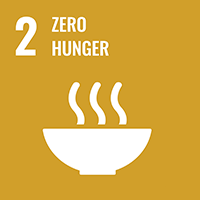 | ZERO HUNGERRelevant goals / sub-targets 2.4 - Ensure the sustainability of food production systems and implement resilient agricultural practices Our efforts The entire ORIOR sustainability strategy aims to make our food production more sustainable. We want to contribute to a resilient agricultural system by means of our procurement activities and collaboration with our suppliers, e.g. by relying increasingly on raw materials from certified sustainable supply chains. |
 | GOOD HEALTH AND WELL-BEINGRelevant goals / sub-targets 3 - Ensure healthy lives and promote well-being for all at all ages Our efforts Occupational safety and health protection is one of our nine central fields of activity within our sustainability strategy. We assume responsibility for the well-being of our employees and aim to raise even more awareness of health-related issues with our suppliers in the future. |
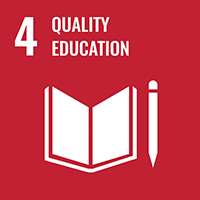 | QUALITY EDUCATIONRelevant goals / sub-targets 4.4 - Promote skills for decent jobs and entrepreneurship Our efforts Ongoing training and upgrading knowledge relevant to one’s job are more important today than ever before. We want to empower our employees to thrive, and so we offer them various opportunities both internally and externally to further develop their skills. |
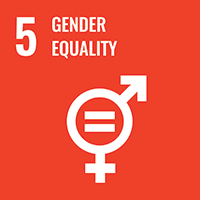 | GENDER EQUALITYRelevant goals / sub-targets
Our efforts At ORIOR, we do not tolerate discrimination of any kind, including based on gender. We promote diversity in our competence centres because we are convinced that mixed teams are more successful and strengthen our corporate culture. |
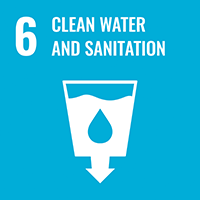 | CLEAR WATER AND SANITATIONRelevant goals / sub-targets
Our efforts We continuously measure and reduce the water consumption at our production facilities as part of our environmental management. To achieve this reduction, we focus on cleaning processes, machinery and employee behaviour. We influence water ecosystems (regarding overfertilisation and pesticides) indirectly through the type of raw materials we source by increasing the amounts of raw materials we source from certified sustainable agriculture. |
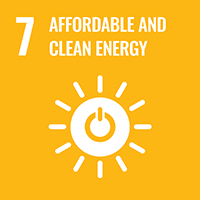 | AFFORDABLE AND CLEAN ENERGYRelevant goals / sub-targets
Our efforts We have been working unceasingly for years to increase energy efficiency in our production facilities, including through the insulation of buildings, optimised processes, and the modernisation of machinery infrastructure. We also want to increase the percentage of renewable energy we use and have invested in a woodchip heating system at Biotta, for example. Since 2020, 100% of the electricity consumed by our Swiss competence centres has been sourced from hydroelectric energy. |
 | DECENT WORK AND ECONOMIC GROWTHRelevant goals / sub-targets
Our efforts Increasing productivity is one of the core objectives of our business strategy, and there is a separate pillar within the “ORIOR Strategy 2025” dedicated to promoting innovation capability. This enables us to not only increase our productivity but also bring more sustainable products and solutions onto the market. Our Code of Conduct highlights our commitment to protecting the rights of our employees and those in the upstream value chain and to promoting a safe working environment. |
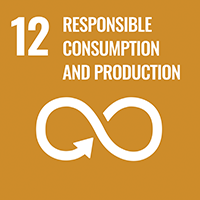 | RESPONSIBLE CONSUMPTION AND PRODUCTIONRelevant goals / sub-targets
Our efforts We address resource efficiency via the environmental responsibility section of our sustainability strategy. We are determined to counteract the waste of raw materials, food, packaging materials and water, and we prioritise these issues at all of our production facilities. Our target of reducing food waste by 25% by 2025 brings us in line with the goal of –50% by 2030 envisaged by SDG 12.3. |
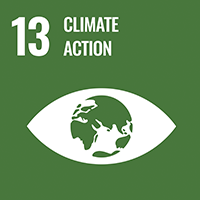 | CLIMATE ACTIONRelevant goals / sub-targets 13 - Take urgent action to combat climate change and its impacts. Our efforts We already achieved our target of reducing greenhouse gas intensity by 10% by 2025 in 2020 and even exceeded it significantly (-68.2%). To further reduce the climate impact in our operations and supply chain, we presented our 3-step climate target in 2022. From 2022, we pursue climate-neutral operations in Switzerland; from 2025, across the entire ORIOR Group. By 2050, we have the ambition to achieve net zero. |
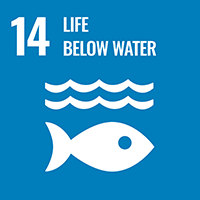 | LIFE BELOW WATERRelevant goals / sub-targets
Our efforts Our contributions in the area of climate and energy help to reduce CO2 pollution in the atmosphere and combat ocean acidification. In terms of marine resources and maritime ecosystems, we employ the WWF rating system when procuring fish, seafood and crustaceans to avoid sourcing endangered species, and we buy sustainability certified labelled goods (MSC, ASC, organic). |
 | LIFE ON LANDRelevant goals / sub-targets
Our efforts A sustainable food supply is closely intertwined with the ecological use of land. We want to contribute to this goal through our purchasing activities and collaboration with our suppliers, e.g. by increasing the raw materials we source from certified sustainable supply chains. In the future, we want to tackle individual environmental issues in our supply chain even more strongly through targeted projects. |
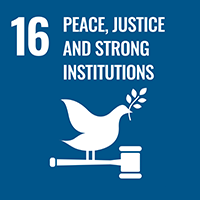 | PEACE, JUSTICE AND STRONG INSTITUTIONSRelevant goals / sub-targets
Our efforts The ORIOR Group is committed to the highest standards of corporate governance and ethical business conduct. Our Code of Conduct, Articles of Association and internal regulations form the normative basis for our activities. We condemn corruption and bribery in any and all forms. When making decisions, we take into account the expectations of our stakeholders on the different topics relating to governance. |
